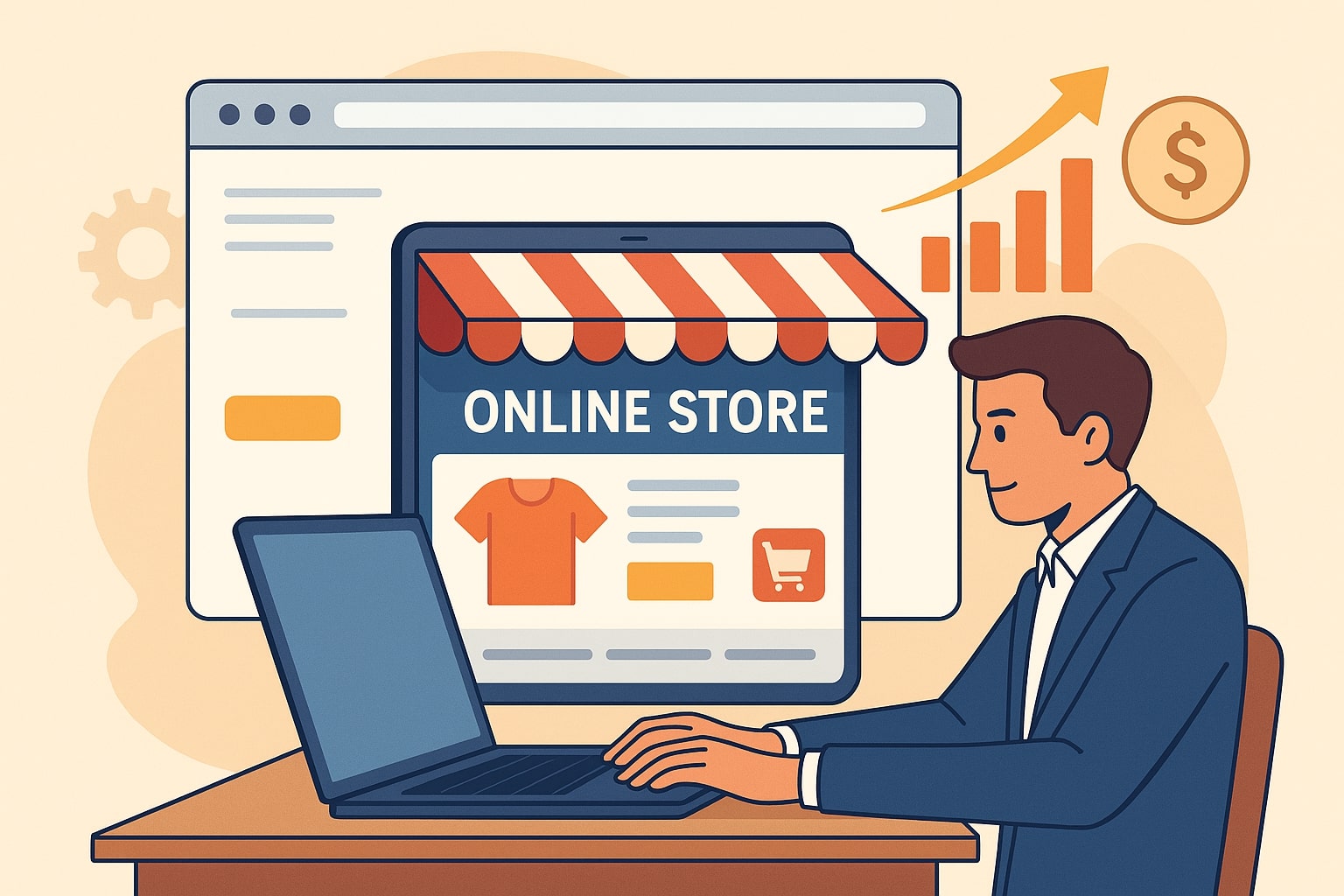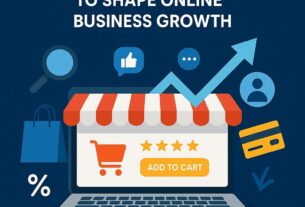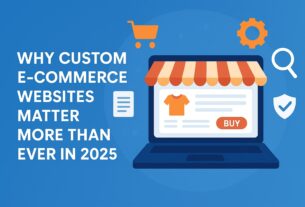For any business today, having an online presence is no longer optional. Whether you’re selling clothes, gadgets, or local services, people expect to find what they need with just a few taps on their devices. The rise of online shopping has made it essential for companies to invest in platforms that meet customer expectations while remaining functional for the business.
A well-structured online store does more than showcase products. It supports your brand, improves visibility, helps increase sales, and builds trust with both new and returning customers. That’s where the question arises — should you opt for a pre-built eCommerce solution or create something more custom?
Why Your Business Might Require a Custom eCommerce Platform
Every business has its own set of requirements. Some need simple product listings; others require complex catalogues with multi-variant options, filters, and integrations. Pre-built solutions may feel easy to start with, but over time, limitations often show up. Features like custom checkout processes, advanced analytics, or multi-language support may not always be available.
For businesses aiming to offer a unique experience and better performance, How Custom eCommerce Development can make a real difference. Custom platforms are designed with your specific needs in mind. You can control product display, customer journeys, and data management—all in one place.
The Importance of Having an Online Store
Even small businesses can benefit from having a simple yet functional eCommerce website. An online store allows you to reach customers beyond your physical location. It gives you the flexibility to run promotions, collect customer feedback, and provide after-sales service.
More importantly, it’s about maintaining relevance in a marketplace where digital presence shapes buying decisions. Many customers now check a brand’s website before visiting a physical store. If there’s no online store or if the existing one looks outdated, potential buyers might choose a competitor instead.
Understanding Business Needs Ecommerce Store helps set clear objectives before you begin building or updating your own. These objectives might include increasing product reach, reducing operational costs through automation, or improving customer satisfaction.
Key Elements That Help Online Stores Succeed
While visual appeal matters, it’s the core functionality that defines whether your store keeps customers coming back. Below are a few essentials that every eCommerce website should include:
- Simple navigation and search filters
- Secure payment gateways
- Fast page loading speed
- Responsive design for all devices
- Easy-to-understand product descriptions
- Customer reviews and ratings
- Transparent return and refund policies
By focusing on these aspects, businesses can avoid common issues like abandoned carts or high bounce rates. Buyers today expect websites to work smoothly—no delays, no confusion.
How Smart Businesses Set Up Their Online Shops
Most successful brands plan their online store structure carefully. This means starting with market research: understanding what your audience wants, how competitors structure their sites, and what pricing strategies apply in your industry.
Smart businesses also pay attention to SEO while developing their websites. They use the right keywords in product titles, meta descriptions, and blog content. Additionally, technical SEO plays a role — factors like fast-loading images, mobile optimisation, and structured data markup are part of the mix.
When looking at How Online Businesses Can Succeed, one key observation is consistent: they all focus on user experience from start to finish. From the homepage to the final checkout step, each click should feel logical and comfortable for the shopper.
Custom Development vs. Off-the-Shelf Platforms
Choosing between a custom-built platform and a ready-made solution like Shopify or WooCommerce depends on business priorities.
Custom development offers flexibility and control. Businesses can define exactly how their store looks, what features it includes, and how it integrates with other systems like inventory management or CRM software.
On the other hand, off-the-shelf platforms allow quicker setup at a lower initial cost. But as needs grow, monthly fees and limited customisation options may pose challenges.
Many businesses start with an off-the-shelf solution and switch to custom development later as they scale up.
Things to Consider Before Starting eCommerce Development
Before jumping into building an online store, it helps to answer these questions:
- What products or services am I offering?
- Who is my target audience?
- What payment methods will I provide?
- How do I want my store to appear visually?
- What shipping methods and costs apply?
- What customer support options will I offer?
Planning answers to these points ensures the development process runs more smoothly. It also reduces delays caused by sudden changes in scope or functionality.
Maintaining and Growing an Online Store
Once your store is live, the work doesn’t stop. Regular updates are necessary. Product lists need refreshing. Blogs and articles should be added to support SEO. Security checks must be run to protect customer data.
Many businesses also integrate customer feedback loops into their websites. Offering loyalty programs, referral bonuses, or simple email follow-ups helps retain existing customers and bring in new ones.
Marketing channels like Google Ads, Facebook campaigns, or influencer partnerships can further boost visibility and sales.
Conclusion: Building a Store That Grows with You
In 2025, having an eCommerce store is not just about selling products; it’s about building relationships and standing out in a crowded digital market.
While pre-built platforms offer a quick entry, investing in custom solutions often supports long-term goals more effectively. It depends on where your business stands today and where you want to take it tomorrow.
Author: Pratik Patel
WEDOWEBAPPS
is
a
leading
USA-based
software
development
company
delivering
end-to-end
digital
solutions
for
enterprises
and
startups.



